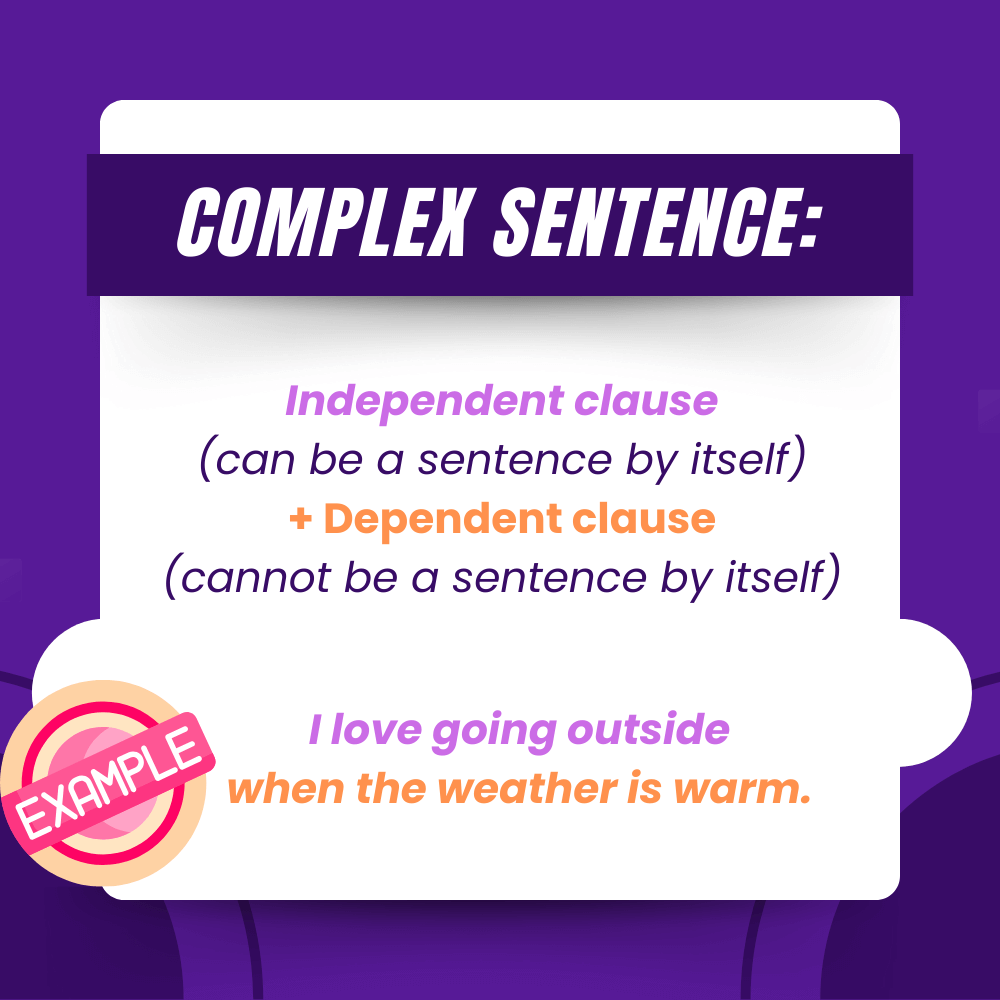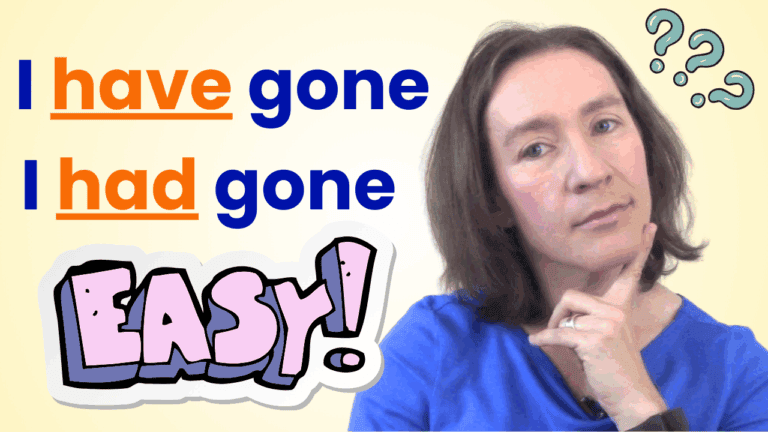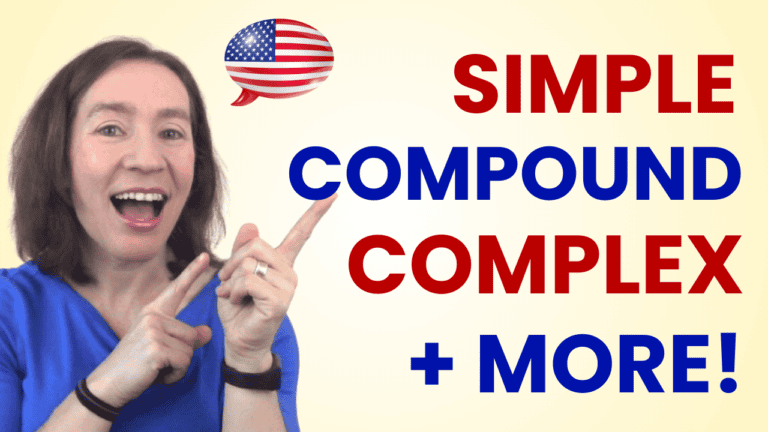What is a complex sentence?
A complex sentence contains one independent clause and one or more dependent clauses.
An independent clause contains a subject and verb, and can stand alone as a complete sentence:
- Independent clause: I love going outside.
A dependent clause also contains a subject and verb, but it cannot stand alone as a complete sentence. Instead, it ADDS information to the sentence:
- Dependent clause: when the weather is warm.
One independent clause + one dependent clause = a complex sentence:
- I love going outside when the weather is warm.

Dependent clauses often start with subordinating conjunctions, for example:
- as
- since
- although
- provided that
- because
- unless
- once
- while
- when
- where
- before
- after
- until
- whenever
- wherever
Subordinating conjunctions often show a cause-and-effect relationship or a relationship of time/place:
- Cause and effect relationship: The baseball game was canceled because it was raining.
- Time relationship: When I get home from work, I always take off my shoes.
- Place relationship: Make sure to put on sunscreen wherever your skin is exposed.
Learn more about subordinating conjunctions.
Difference between a compound sentence and a complex sentence
A compound sentence contains two independent clauses joined by a coordinating conjunction (and, but, or, so, yet):
- I’m happy, but my kids are always complaining.
(“I’m happy” can be a complete sentence. “My kids are always complaining” can also be a complete sentence. They are joined by the coordinating conjunction “but”) - The blue jacket cost over $100, and he wears it every day.
(“The blue jacket cost over $100” is a complete sentence. “He wears it every day” is a complete sentence. They are joined by the coordinating conjunction “and”)
A complex sentence contains one independent clause and one or more dependent clauses, joined by a subordinating conjunction or a relative pronoun (that, who, which):
- I’m happy because we won the game.
(“I’m happy” can be a complete sentence. “Because we won the game” cannot be a sentence by itself.) - The blue jacket, which I gave him for Christmas, cost over $100.
(“The blue jacket cost over $100” is a complete sentence. “which I gave him for Christmas” is NOT a complete sentence. They are joined by the relative pronoun “which”)

Difference between a dependent clause and a prepositional phrase
Words like before, after, since, and until can begin either a dependent clause or a prepositional phrase.
The main difference is that a dependent clause has a subject and verb, but a prepositional phrase does not:
- I’ll wait here until you get back.
(dependent clause: you = subject, get = verb)
- I’ll wait here until 5:30.
(prepositional phrase: no subject/verb after “until”) - He’s never been the same since he broke up with his girlfriend.
(dependent clause: he = subject, broke up = verb)
- He’s never been the same since the car accident.
(prepositional phrase: no subject/verb after “since”)
Complex Sentences: Simple Present Tense
The independent clause in bold, and the dependent clause is underlined:
- Although he works long hours, he always finds time to spend with his family.
- She always wears jewelry that matches her outfit.
- While my brother enjoys spicy food, I prefer milder flavors.
- Several crops grow here, even though it rarely rains in this region.
- Though he is talented, he often underestimates his own abilities.
- Although the company faces tough competition, it continues to thrive in the market.
- I think you’d like this book, since you love historical fiction.
- He always studies a lot before he takes a test.
- I sometimes walk to work, as long as the weather is good.
- My mother stays up late, whereas my father goes to bed early.
Complex Sentences: Simple Past Tense
- After she finished her studies, she traveled around Europe for six months.
- Although they were tired, they stayed up late to finish their project.
- He immediately called for help when he saw the accident.
- My kids often misbehaved whenever they had a babysitter.
- Since he sold his car, he had to take the bus to work.
- She didn’t ride the roller coasters, even though she was old enough to do so.
- When they arrived at the restaurant, they realized it had already closed.
- I stayed awake until my husband got home from work.
- Before he left his job, he wrote a number of training manuals.
- She performed very well on stage, though she was quite nervous.
Complex Sentences: Future Tenses in the Independent Clause
- After I finish my degree, I will pursue a career in environmental conservation.
- She will visit her grandparents next weekend, as she hasn’t seen them in months.
- Once the project is complete, the company will launch its new product on the market.
- By the time I graduate, I will have traveled to at least five different countries.
- We’re going to clean the bathrooms after we’re done cleaning the kitchen.
- They will be driving to Florida since flights are too expensive.
- Electric cars will become more popular in a few years, even though they’re not very common now.
- I’m going to start preparing dinner before I leave for work.
- Once the renovations are finished, the house will be even more beautiful.
- I won’t lend you any more money until you pay me back.
Complex Sentences: Continuous Verb Tenses in the Independent Clause
- While I was studying for my exam, my friends were watching a movie.
- They will be traveling to Europe while we are attending the conference.
- As the sun was setting, the children were playing in the park.
- I was cleaning the house all evening after I saw how dirty it was.
- I’ll be waiting for you at the café until you finish your meeting.
Complex Sentence Examples: Mixed Verb Tenses
- When I finish my work, I will join you for dinner.
- I had cleaned the whole house before we left for vacation.
- He couldn’t go to the party because he was feeling sick.
- I’m not buying anything else this month since I’ve already spent too much.
- As soon as they receive the necessary materials, they will start the project.
- Once she finishes her degree, she plans to travel the world.
- I was exhausted because I had been working all day.
- Now that the rain has stopped, we can go outside.
- He will buy a new car once he saves enough money.
- Since she doesn’t have any prior experience, she decided to take a training course.
Complex Sentence Examples: Conditionals
Some of the most common complex sentences are conditional sentences like the examples below. Again, the independent clause (result) is in bold, and the dependent clause (condition) is underlined.
- If it rains tomorrow, we will stay indoors and watch movies.
- She won’t pass the exam unless she studies a lot.
- If I won the lottery, I would travel around the world.
- He would have gone to the party if he hadn’t been so tired.
- If I had known about the event, I would have attended.
- She will be late if she doesn’t catch the early bus.
- If the children finish their chores, they can go to the park.
- We won’t eat a big dinner if we’re not very hungry.
- If you eat too much junk food, you will gain weight.
- She could earn more money if she had a better job.
Learn more about first conditional and second conditional.
More examples of sentence structures:











